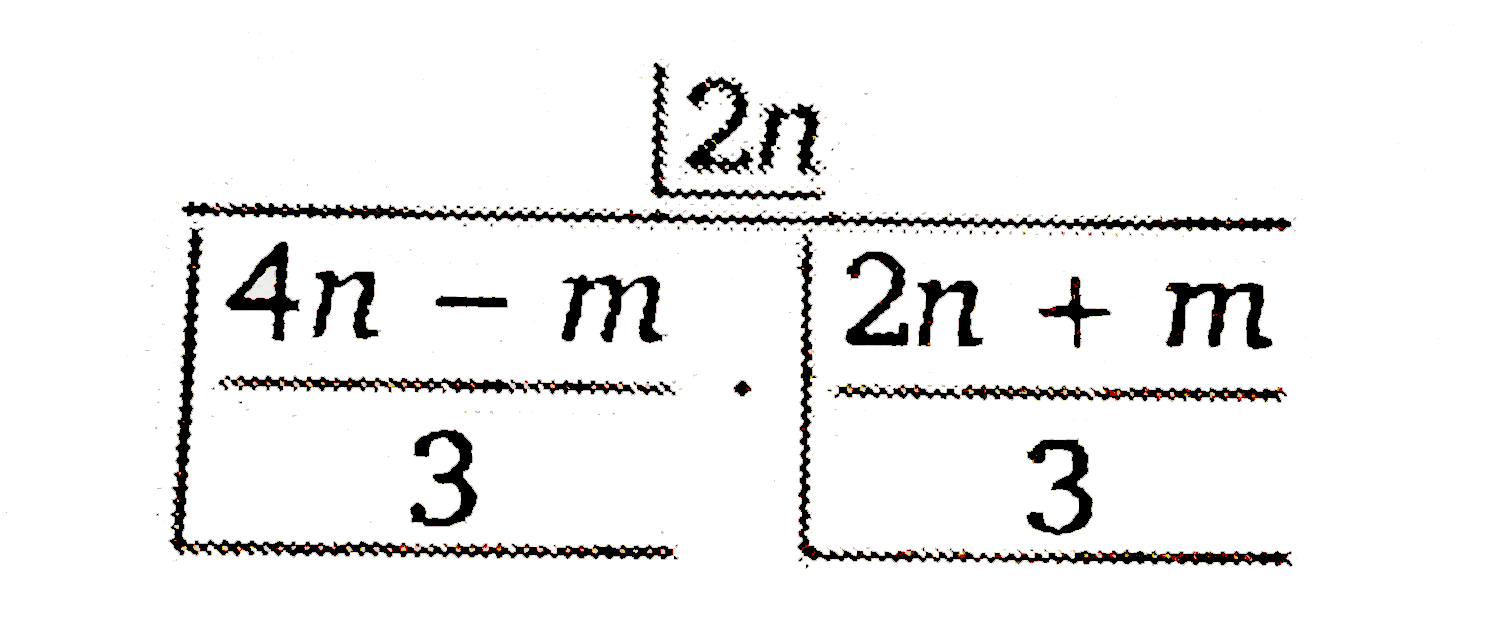If n be a positive integer and Pn denotes the product of the binomial coefficients in the expansion of (1+x)n, prove that Pn+1Pn=(n+1)nn!.
n+1n!
nnn!
(n+1)n(n+1)!
n+1n+1(n+1)!
The correct Answer is:d
To prove that Pn+1Pn=(n+1)nn!, where Pn denotes the product of the binomial coefficients in the expansion of (1+x)n, we will follow these steps:
Step 1: Define Pn and Pn+1
The product of the binomial coefficients in the expansion of (1+x)n is given by:
Pn=n∏k=0(nk)
Similarly, for Pn+1:
Pn+1=n+1∏k=0(n+1k)
Step 2: Express Pn+1 in terms of Pn
We can express Pn+1 as:
Pn+1=n∏k=0(n+1k)⋅(n+1n+1)
Since (n+1n+1)=1, we have:
Pn+1=n∏k=0(n+1k)
Step 3: Use the property of binomial coefficients
Using the identity for binomial coefficients:
(n+1k)=(nk)+(nk−1)
We can express (n+1k) in terms of (nk) and (nk−1).
Step 4: Calculate the ratio Pn+1Pn
Now, we can write:
Pn+1Pn=∏nk=0(n+1k)∏nk=0(nk)
This simplifies to:
Pn+1Pn=n∏k=0(n+1k)(nk)
Step 5: Simplify the ratio of binomial coefficients
Using the definition of binomial coefficients:
(n+1k)(nk)=(n+1)!/(k!(n+1−k)!)n!/(k!(n−k)!)=(n+1)(n−k)!(n+1−k)!
This can be further simplified to:
(n+1)(n+1−k)
Step 6: Calculate the product
Thus, we have:
Pn+1Pn=n∏k=0(n+1)(n+1−k)=(n+1)n⋅1n!
Step 7: Final result
Therefore, we conclude that:
Pn+1Pn=(n+1)nn!
This completes the proof.
Pn=n∏k=0(nk)
Similarly, for Pn+1:
Pn+1=n+1∏k=0(n+1k)
Pn+1=n∏k=0(n+1k)⋅(n+1n+1)
Since (n+1n+1)=1, we have:
Pn+1=n∏k=0(n+1k)
(n+1k)=(nk)+(nk−1)
We can express (n+1k) in terms of (nk) and (nk−1).
Pn+1Pn=∏nk=0(n+1k)∏nk=0(nk)
This simplifies to:
Pn+1Pn=n∏k=0(n+1k)(nk)
(n+1k)(nk)=(n+1)!/(k!(n+1−k)!)n!/(k!(n−k)!)=(n+1)(n−k)!(n+1−k)!
This can be further simplified to:
(n+1)(n+1−k)
Pn+1Pn=n∏k=0(n+1)(n+1−k)=(n+1)n⋅1n!
Pn+1Pn=(n+1)nn!
This completes the proof.
Topper's Solved these Questions
- BINOMIAL THEOREM AND ITS APPLCIATIONS BOOK - OBJECTIVE RD SHARMA ENGLISHCHAPTER - BINOMIAL THEOREM AND ITS APPLCIATIONS EXERCISE - Section I - Assertion Reason Type
13 Videos
- BINOMIAL THEOREM AND ITS APPLCIATIONS BOOK - OBJECTIVE RD SHARMA ENGLISHCHAPTER - BINOMIAL THEOREM AND ITS APPLCIATIONS EXERCISE - Exercise
103 Videos
- BINOMIAL THEOREM AND ITS APPLCIATIONS BOOK - OBJECTIVE RD SHARMA ENGLISHCHAPTER - BINOMIAL THEOREM AND ITS APPLCIATIONS EXERCISE - Chapter Test
58 Videos
- CARTESIAN CO-ORDINATE SYSTEM BOOK - OBJECTIVE RD SHARMA ENGLISHCHAPTER - CARTESIAN CO-ORDINATE SYSTEM EXERCISE - Exercise
27 Videos
Similar Questions
For a positive integer n if the mean of the
binomial coefficients in the expansion of (a+b)2n−3 is 16 Then n is equal to
View SolutionIf 'n' is a positive integer then prove that the coefficient foxm in the expansion of (x2+1x)2n is :

View SolutionIf 'n' is a positive integer then prove that the coefficient foxm in the expansion of (x2+1x)2n is :

View SolutionFind out the sum of the coefficients in the expansion of the binomial (5p−4q)n, where n is a +ive integer.
View SolutionIf Pn denotes the product of all the coefficients of (1+x)nand8!Pn+1=98Pn then n is equal to
View SolutionIf m and n are positive integers, then prove that the coefficients of xm and xn are equal in the expansion of (1+x)m+n
View SolutionIf pandq are positive, then prove that the coefficients of xpandxq in the expansion of (1+x)p+q will be equal.
View SolutionIf C0,C1,C2,…,Cn denote the binomial
coefficients in the expansion of (1+x)n , then n∑0≤rn∑<s≤nCrCs=.
View SolutionIf C0,C1,C2,…,Cn denote the binomial
coefficients in the expansion of (1+x)n, then n∑r=0n∑s=0(Cr+Cs)
View SolutionIf Pn denotes the product of all the coefficients of (1+x)n and 9!Pn+1=109Pn then n is equal to
View Solution
